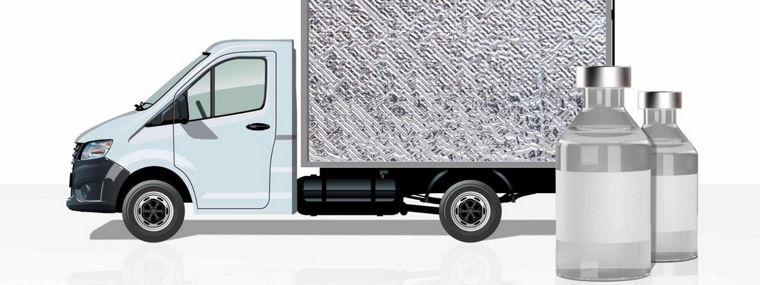Vaccine logistics: Silica from Evonik as part of the cold chain that must remain intact at all times
People all over the world place their hopes in vaccines for protection against highly contagious infectious diseases and in blood reserves, clinical samples or pharmaceutical products. The logistical challenges are enormous, also because of the precise cooling: How can these temperature-sensitive substances get from the production sites to vaccination centers, doctors' practices, hospitals and also to people in hard-to-reach regions of the world without loss of efficacy and without interrupting cooling throughout the entire supply chain?
Cooling with electricity is energy-intensive and expensive. An alternative is passive cooling methods that do not require an external energy supply because they are lined with vacuum insulation panels (VIP). VIPs with AEROSIL®, a fumed silica synthesized in a 1200° Celsius hydrogen flame, are highly efficient and can therefore, above all, be used much thinner than other insulation materials with the same effect. Therefore, they are ideal for the production of insulating containers or boxes for temperature-controlled transport of goods that must not be exposed to temperature fluctuations.
AEROSIL® thermal conductivity: Passively cooled using vacuums and silica
- Non-vacuum state: λ = 20 mW/m.K
- Vacuum state: λ ≈ 5 mW/m.K
“Passively cooled transport units are a vital part of our PharmaChain. They use VIPs and, depending on the required temperature, either cool packs or dry ice,” confirms logistics service provider Kühne+Nagel, which is involved in the delivery of COVID-19 vaccines.
Increased freight volume thanks to thinner insulation
5 benefits of VIP with AEROSIL® fumed silica for cooled transportation
- Reliable passive cooling
- Lower energy consumption and CO2 emissions thanks to energy retention
- Up to 20% more transport and storage volume thanks to thin-walled boxes
- Low weight
- Sustainable thanks to long life cycle of over 30 years
Polystyrene boxes are used for the transportation of some medical and pharmaceutical products. “But polystyrene takes up lots of space!” says Dr. Veronika Brixner from the blood donation service in Hesse | Baden-Württemberg, adding that space-saving alternatives can help save storage costs.
Find out how silica helps to reduce the carbon footprint, what benefits logistics company Kühne+Nagel and a transfusion physician see in the use of VIP.
